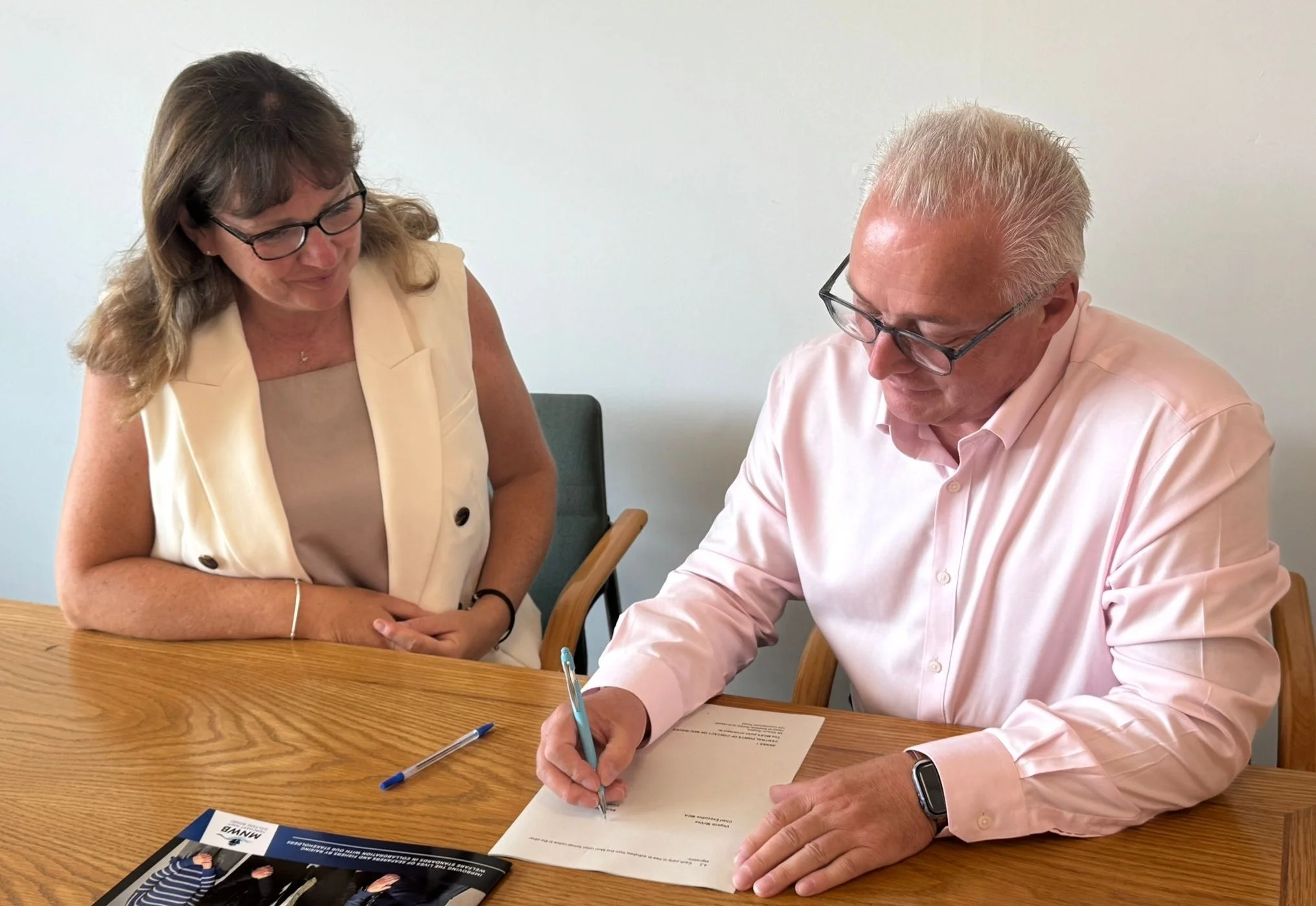UK commitment to welfare of seafarers reaffirmed after agreement re-signing
The welfare of seafarers and fishers across the UK has strengthened with the renewal of a formal agreement between the Maritime and Coastguard Agency (MCA) and the Merchant Navy Welfare Board (MNWB).
The updated Memorandum of Understanding (MoU), re-signed by both organisations this year, reaffirms their shared commitment to championing those working at sea and improving welfare services and facilities.
Under the MoU, the MNWB was formally recognised as the UK’s National Seafarers’ Welfare Board in 2021 in line with the ILO Maritime Labour Convention, 2006.
This renewed agreement outlines each organisation’s specific responsibilities, while committing to even closer coordination, information sharing, consultation, and collaboration on issues affecting seafarer and fisher welfare.
Working with our members, the MCA and the Department for Transport, MNWB’s aim is to support and equip those organisations that provide front line welfare services to all seafarers and fishers visiting UK ports.
Maritime Minister, Keir Mather said: “Our hardworking seafarers are the backbone of our maritime economy, helping to keep goods and people moving around the world.
“We’re working with the sector to raise the bar for seafarers’ working conditions and welfare and it’s fantastic to see the Maritime and Coastguard Agency and the Merchant Navy Welfare Board coming together to deliver change.”
Stuart Rivers (pictured, right), CEO of the MNWB which is the umbrella charity for the UK Merchant Navy and fishing fleets representing 48 charity members, said: “We welcome the renewed agreement with the MCA and are thrilled to see formal recognition of the MNWB’s role as the UK’s National Seafarers’ Welfare Board reaffirmed. This MoU not only acknowledges our longstanding relationship but also highlights the vital role played by our member organisations and our Port Welfare Committees.
Virginia McVea (left), CEO of The MCA which works to prevent the loss of life on the coast and at sea, said: “Alongside our close working relationship, this updated memorandum underlines and reaffirms our collaboration with the Merchant Navy Welfare Board and our shared commitment to the welfare of those working at sea.
“The work of the UK’s National Seafarers’ Welfare Board is crucial; ensuring that frontline welfare services are provided to seafarers while visiting the UK and its ports.”
Under the terms of the agreement, the MCA will continue to appoint a senior representative to the MNWB’s Council of Management and provide representation on local Port Welfare Committees, forums and working groups.
The MoU outlines a shared commitment to:
- Ensure an integrated approach to the provision of welfare to seafarers and the most effective use of MCA and MNWB resources and expertise in order to comply with seafarer welfare provisions of MLC, 2006 and C188 Work in Fishing Convention.
- Help promote collaboration at national, regional and local levels to ensure that effective procedures are in place and implemented with regard to promoting seafarers’ welfare within the UK.
- Keep under review the adequacy of existing welfare facilities in appropriate ports, monitor the need for the provision of additional facilities and withdrawal of the use of under-utilised facilities.
- Promote awareness of each organisation’s role in the provision of welfare to seafarers and fishers to improve collaboration and communication where necessary.
- Help to ensure that no seafarer or fisher is left without welfare support in the context of the responsibilities of the UK Government as set out in ILO MLC, 2006 and C188.
- Promote co-operation with other Member States of the ILO to promote the welfare of seafarers and fishers at sea and in port.
The National Seafarers’ Welfare Board oversees a network of 15 Port Welfare Committees (PWCs), and a National Seafarers’ Welfare Board in Gibraltar, that focus on improving welfare provision in the ports they represent.
The PWCs include members from the MCA, port health, unions, shipowners, port owners and welfare charities, making them an effective body for positive change in ports.

